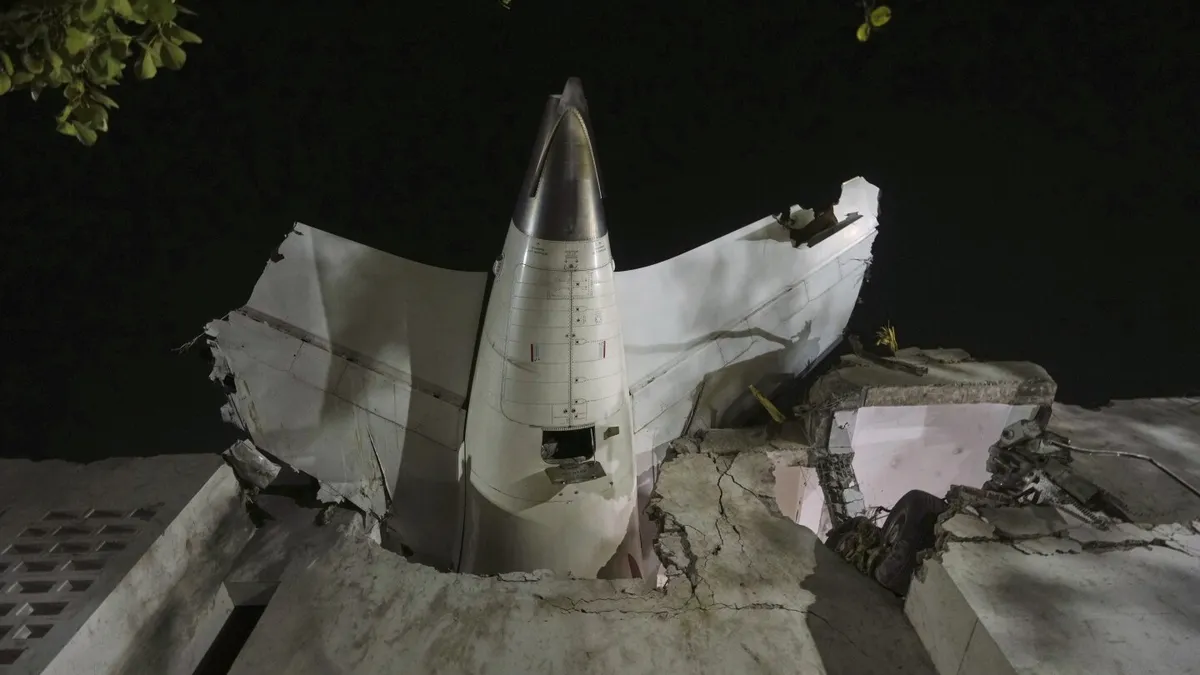
The history of Air India, the national flag carrier, has been marred by a series of tragedies and financial losses during its government control from 1953 until 2022. A notable incident occurred in 2010 when an Air India flight overshot the runway, plunging over a cliff and resulting in the deaths of 158 people. Another devastating crash took place in 2020 when an Air India Express flight skidded off a runway amid heavy rain, breaking apart and killing 18 individuals. Jitendra Bhargava, a former executive director of the airline and author of “The Descent of Air India,” attributed these tragedies to government ownership, which fostered an outdated work culture and management practices by bureaucrats unfamiliar with the aviation industry.
By the time Indian conglomerate Tata Sons acquired Air India in a deal worth 180 billion rupees (approximately $2.4 billion), the airline's market share had dwindled to about 12%, with looming threats from expanding competitors. Since the takeover, Air India has embarked on a mission to modernize its operations and fleet, striving to reinvent itself in the competitive aviation market.
On June 12, 2025, a tragic plane crash involving an Air India flight occurred in Ahmedabad, India. The crash site, marked by the tail of the aircraft jutting out from a building, captured the public's attention and sorrow. A gathering of approximately 100 people held prayers at the BAPS Shri Swaminarayan Mandir, a Hindu temple in Neasden, London, for the victims of the crash. Yogvivekdas Swami led the prayers, asking for strength and solace for the families of those affected.
The aircraft, which had crashed shortly after takeoff, tragically collided with a building that served as a dining area for medical students, claiming the lives of at least five students and injuring around 50 others. Eyewitness Ramesh, a survivor of the crash, recounted the horror of seeing bodies and debris scattered around him. He described feeling terrified and confused as he fled the scene, highlighting the chaos and devastation that ensued.
In the aftermath of the crash, a lack of information left many anxious family members awaiting news at Gatwick Airport, where the flight was scheduled to land. Meanwhile, Boeing, the manufacturer of the plane, expressed condolences and committed to supporting Indian authorities in the investigation. This incident marked the first crash of a Boeing 787 Dreamliner, raising questions about the cause, particularly given the recent troubles associated with Boeing's 737 Max model.
Medical professionals reported that survival was unlikely for the passengers of the flight, raising concerns about the safety of Air India and the need for rigorous investigations. As authorities work to determine the cause of the crash, questions regarding the aircraft's condition and whether it was properly configured for flight have emerged. Aviation experts suggested that there could have been issues with the aircraft’s engines or fuel systems, leading to the tragic outcome.
In response to this devastating event, Tata Group, the parent company of Air India, announced a compensation of 10 million rupees (approximately $116,800) for the families of those who lost their lives in the crash. The company also pledged to cover medical expenses for injured victims and support the rebuilding of the medical college affected by the incident. This tragic event has sparked widespread mourning and concern among communities in India and abroad, especially in light of the close ties between the U.K. and India.
In a heartfelt message, former British Prime Minister Rishi Sunak expressed his shock and sorrow over the news, emphasizing the unique bond between the two nations and extending condolences to the families affected by the crash. The U.S. government also offered assistance in the investigation, reinforcing the international response to this tragic aviation disaster.
The recent crash of Air India Flight 171 serves as a grim reminder of the airline's troubled history and the urgent need for safety improvements within the aviation industry. As investigations continue, the focus remains on ensuring that such tragedies do not repeat, and that families affected by this loss receive the support and answers they desperately seek.